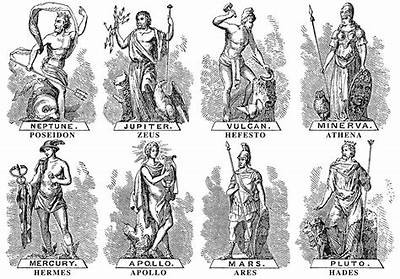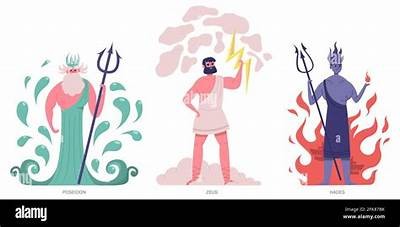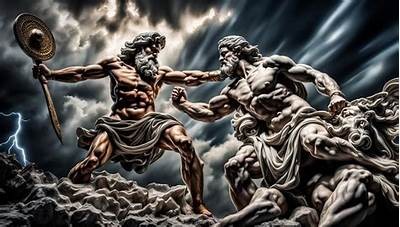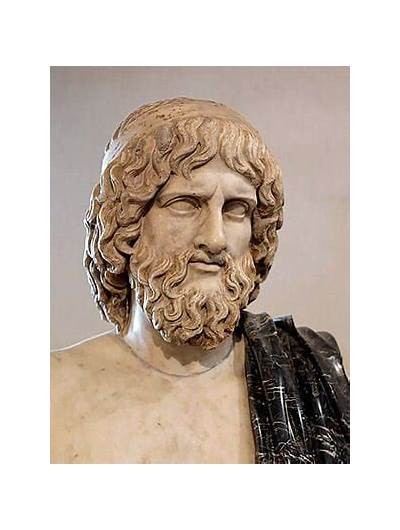Who Would Win in a Battle: Zeus or Hades in Greek Mythology?
Who Would Win in a Battle: Zeus or Hades in Greek Mythology?
In the realm of Greek mythology, the pantheon of gods is rich with stories, tales of heroism, cosmic battles, and ancient wisdom. Among these deities, Zeus, the king of the gods, and Hades, the god of the underworld, are among the most powerful figures. Explorations into their strengths, weaknesses, and roles within the mythological universe raise intriguing questions: if Zeus and Hades were to engage in a battle, who would emerge victorious? In this essay, we will delve deep into their attributes, powers, and the intricate dynamics of their relationship, leading to a thoughtful conclusion about the possible outcome of such a legendary confrontation.

The Nature of the Gods
Understanding the nature of Zeus and Hades is crucial to evaluating their potential in a battle. Zeus, often associated with the sky, lightning, and thunder, is portrayed as a formidable figure of authority and justice. His symbols include the thunderbolt, the eagle, and the oak tree, all embodying power and sovereignty. As the ruler of Mount Olympus, Zeus's primary role is to preside over gods and mortals, ensuring order within both realms.

On the other hand, Hades, who presides over the underworld, is often misunderstood. Unlike the evil figure he is sometimes made out to be, Hades is integral to the balance of life and death. His realm is not synonymous with hell but is a place where souls reside after death. Hades is typically depicted with the Helm of Darkness, a powerful artifact that grants him invisibility. Unlike Zeus’s open and dominating nature, Hades operates in the shadows, governing his domain with stern authority.

Powers and Abilities
Zeus possesses a range of extraordinary powers that make him a fierce competitor. His most iconic ability is to wield thunderbolts, with which he can strike down foes and command the weather. He also has the power to shapeshift and can manipulate time and fate, thanks to his divine lineage and unmatched might.

Conversely, Hades has his unique arsenal of skills. His dominion over death gives him control over the souls of the departed, and he can summon them if needed. Hades also possesses the ability to manipulate the earth, crafting the very fabric of the underworld. With the Helm of Darkness, he can become undetectable, perhaps an advantage in a confrontation. The strength of Hades lies not just in brute force but also in strategic cunning and manipulation of his environment.

The Dynamic Between Zeus and Hades
The relationship between Zeus and Hades is complex, marked by both rivalry and familial ties. Both are brothers, sharing a deep history that is often overlooked in their conflict. Zeus, with his role as king, often makes decisions that can lead to tension, especially when they encroach upon Hades’ territory or authority. Conversely, Hades typically respects Zeus’s position, understanding the necessity of balance among the gods.
This sibling dynamic adds another layer to their hypothetical battle. Personal relationships can sometimes dictate the outcome of conflicts; emotional weight can sway the balance in unexpected ways, potentially favoring one side over the other.
The Arena of Battle
The setting of a battle can significantly alter the outcomes in mythological confrontations. If Zeus and Hades were to fight on Mount Olympus, it is likely that Zeus would have the upper hand. The realm of the gods is filled with allies and the benefits of the sky. Conversely, if the battle were to take place in the underworld, Hades would have a distinct advantage, commanding the very spirits and terrain of his domain. This natural edge would allow him to use the environment strategically against Zeus.
Historical Context and Myths
Greek myths often portray deities in conflict and alliance as they navigate the affairs of gods and mortals. Notably, their stories do not always resolve in clean-cut victories. Instead, many tales emphasize the nuanced interplay of power, wisdom, and fate. A prominent myth involves the Titanomachy, where Zeus battles against the Titans, including Hades, who at times could be seen as a competitor for the throne. Similarly, the quest for power often leads to conflict, exemplifying the eternal struggle present in their mythical world.
The Final Showdown: Prospects of Victory
When evaluating the prospect of a head-to-head battle between Zeus and Hades, various factors must be considered. Zeus’s raw power and ability to control nature are formidable, but Hades’ strategic advantage with the Helm of Darkness cannot be underestimated. The outcome might not be a matter of simple strength and power; wisdom, tactics, and even emotions could play pivotal roles.
Ultimately, the victor in such a monumental battle would depend largely on context—motivations, the element of surprise, allegiances, and the setting of the confrontation. Thus, while it may seem that Zeus holds the privilege of being the stronger figure due to his title and shown powers, Hades could turn the tides with intelligence, cunning, and the darkness that he commands.
Conclusion: A Battle Beyond Strength
In conclusion, the question of who would win in a battle between Zeus and Hades leads to profound reflections on power, loyalty, and the intricacies of mythology. While Zeus embodies overwhelming might and direct confrontational prowess, Hades represents the subtleties of strategy and the effective use of environment. The true victor in a battle between these two gods might ultimately be indeterminate, opening a doorway to endless debates among mythology enthusiasts. Their conflict, like many stories from ancient Greece, invites contemplation, and with every interpretation, new insights arise about the natures of power, relationships, and the very essence of existence itself.
